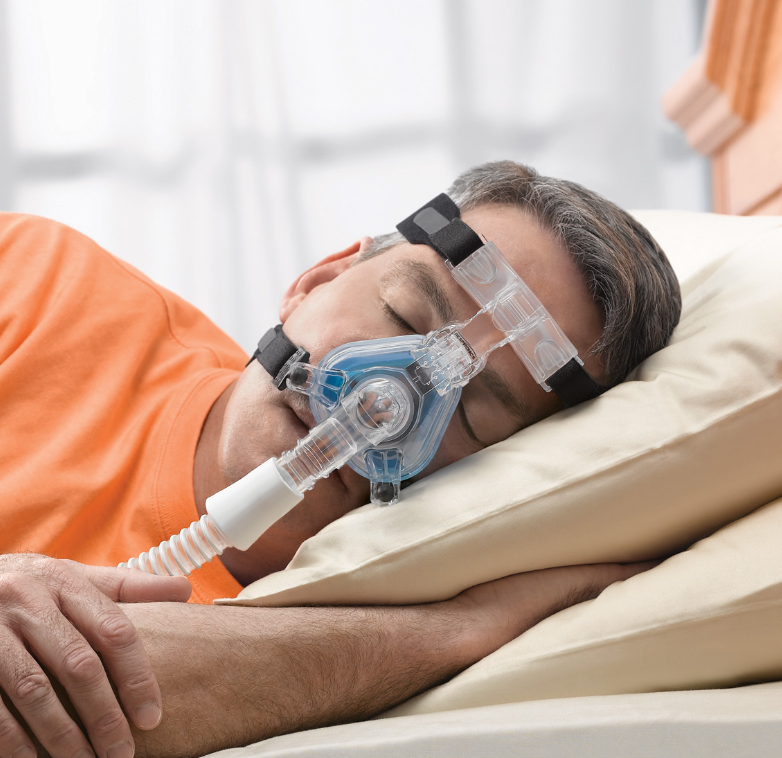All of these are associated with mental health, including therapy, medicines, and even just a change in lifestyle. Another aspect that we usually neglect with respect to mental well-being is sleep quality. Conditions such as obstructive sleep apnea (OSA) cause sleeplessness to have a marked effect on physical and mental health. A CPAP machine would also restore and enhance emotional well-being by promoting restful nights.
There’s a strong relationship between CPAP and sleep and mental wellness, as the article elaborates, and one can tell how the CPAP machine will reshape the quality of sleep and mood.
Most probably, it is very well known that sleep apnea and mental health are tied. For those experiencing depressive or anxious dispositions, thinking that such symptoms may lead to aggravation from obstructive sleep apnea, visit a healthcare provider immediately. If you have depressive or anxious feelings and deem that sleep apnea might be a contributing factor, you should likely see a healthcare provider. They would recommend a sleep study to evaluate whether a CPAP will be of any help to you. Your body and brain will feel starved as they lack regained sleep and mostly oxygen, making it hard to balance emotions and function optimally during the day.
- Untreated sleep apneas may devastate your mental health:
- More easily irritated and agitated
- Inability to concentrate or make decisions
- Increased risk for depression or Anxiety
- Lower stress-tolerant ability
- Memory and cognitive decline
What is a CPAP Machine? What Does CPAP Mean?
There are also CPAP machines used in the medical management of obstructive sleep apnea; a pressurized airflow through the mask keeps the airway open during sleep to prevent interruptions in breathing.
With more airflow and, therefore, much rest commanding through the CPAP machine, this is also not just treating the physical well-being symptoms but actually treating the balance of mental and emotional health.
Psychological aspects of using a CPAP machine –
- Decreased Risk for Depression.
Apparently, patients who present with sleep apnea and have been following the CPAP therapy have shown significant improvement in symptoms associated with depression. For instance, it is indicated that sound sleep allows better balance in the production of serotonin, the feel-good chemical in the brain.
- Reduces Anxiety.
Poor sleep increases the stress response in the brain and worsens anxiety symptoms, while CPAP therapy normalizes the sleep cycle and allows for a calmer nervous system that keeps anxiety levels at bay.
Therapy, medications, and lifestyle changes come to mind as being the more relevant to mental health. However, sleep quality is one of the most overlooked areas of mental well-being. Lack of sleep in patients with obstructive sleep apnea (OSA) hampers their physical and mental health. But a good CPAP will help in restoring this and greatly assist someone with psychological well-being in having better nights.
This powerful link between CPAP for sleep and mental wellness is an excellent capture in the text above and describes just how buying a CPAP machine may influence how well you sleep and your mood.
And the most important thing is that sleep apnea and mental health are long known to be related. Sleep apnea is an ailment when the airway has become obstructed. This pathway obstructs breathing many times during sleep. Hence, it results in the impairment of sleep with quality, low oxygen delivery, and, therefore, daytime fatigue.
Contrarily, extended deprivation of sleep leads to the depressive effects associated with anxiety and mood disorders. With the dearth of restful sleep, the body and mind can hardly balance emotions and function efficiently throughout the day.
- Untreated sleep apneas can seriously affect your mental health:
- More easily irritated and agitated
- Inability to concentrate or make decisions
- Increased risk for depression or Anxiety
- Lower stress-tolerant ability
- Memory and cognitive decline
Conquering CPAP Therapy Challenges
Scarce evidence has been presented in this regard. Generally, recognition is given for exorbitant reasons for using CPAP, but not many people find it effective. Discomfort with a mask, dryness or rawness in the mouth, or clot-related anxieties are some of the problems that people actually cite.
Ways to conquer those barriers:
- Different types of masks should be tried that fit comfortably.
- Use a CPAP machine that includes humidification to avoid dryness.
- Ease into wearing the mask during therapy in the daytime for short periods.
- Get your CPAP provider or sleep therapist to assist you with adjustments.
Being consistent and being patient in the early adjustment period will go a long way in terms of physical and mental health.
When to Talk to a Professional:
If you suffer from depression or Anxiety and think sleep apnea may add to those feelings, you should seek the advice of a healthcare provider. They should send you for a sleep study to see if a CPAP machine is right for you.
For those who have been using CPAP without any benefit to mental health, consider these questions:
- Are you compliant with the use of your machine (more than 4 hours per night)?
- Is your machine well-fitted and comfortable?
- Are there other existing mental health conditions that may warrant treatment?
On the other hand, CPAP Therapy Is Best Implemented Alongside Mental Health Strategies.
While CPAP therapy is potent, its effects are optimal with additional mental health strategies. Additional strategies aimed at caring for your emotional well-being include:
- Exercise to release endorphins
- Mindfulness and meditation to relieve stress
- Counselling or therapy for sustained emotional support
- A nutritious diet that promotes brain function
This package of therapies has the potential to strengthen the mood-enhancing effect of improved sleep courtesy of your CPAP machine.
Final Thoughts
Sleep and mental health have a strong correlation. CPAP machines can become too valuable to those with sleep apnea, not necessarily healing the physical but bringing much-needed emotional oxygen. Because of the ongoing use of this little device, one can wake up feeling refreshed, thinking clearly, and emotionally balanced.
Have mood disturbances, low energy, or persistent Anxiety? Think about the role poor sleep plays. Anxiety and recovery of quality of life may be related to CPAP use. Of course, as always, consult your physician or your sleep specialist to determine whether CPAP therapy is warranted for you. Sleep is not just for bettering the body; sleep can better the spirit and strengthen the mind.



